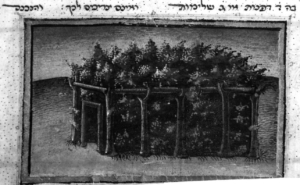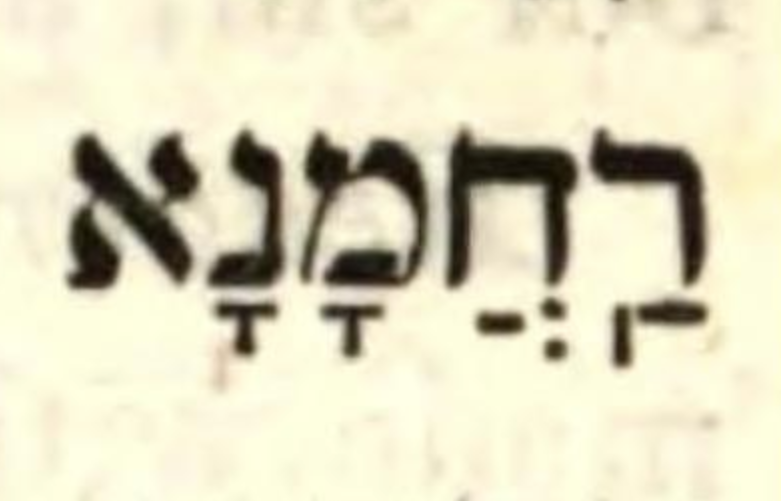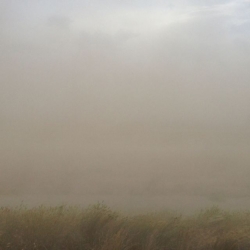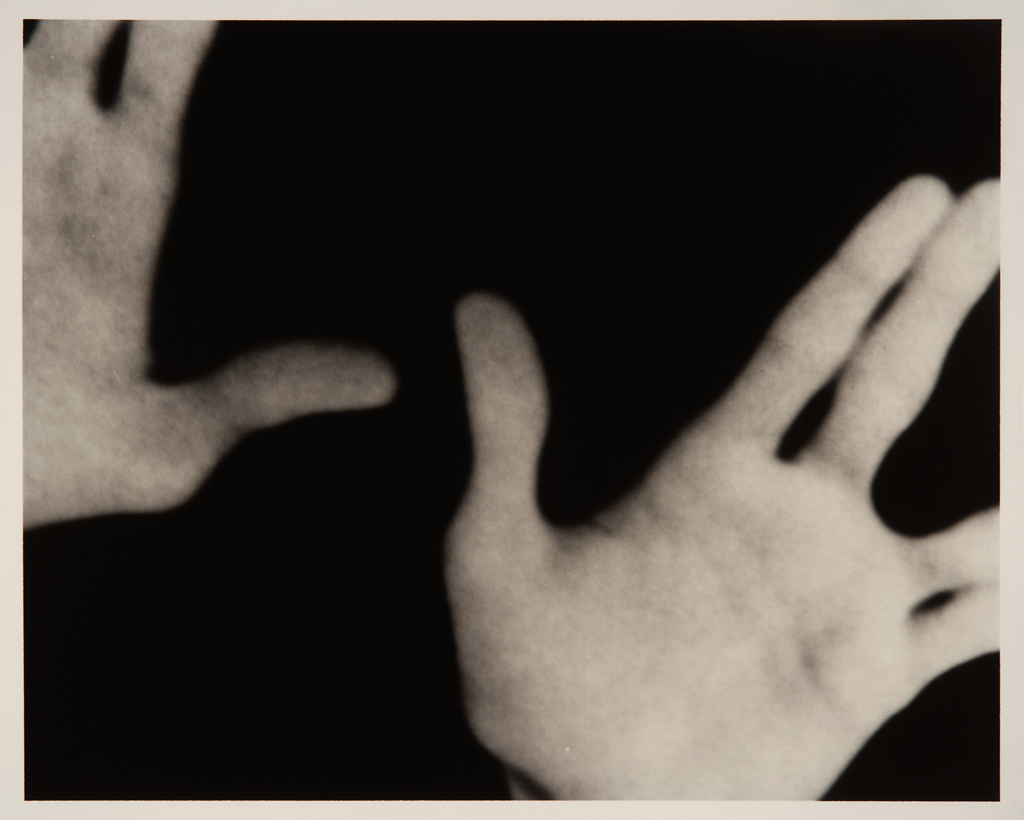| Hebrew | English |
|---|---|
מִי שֶׁשָּׁכְנָה עִם שָׂרָה אִמֵּנוּ אַחֲרֵי בָּלְתָה, הִיא תִּשְׁכֹּן עִמָּנוּ. |
May the Presence that dwelt with Sarah the Matriarch after her withering[1] Genesis 18:12 dwell with us. |
מִי שֶׁשָּׁכְנָה עִם רִבְקָה כְּשֶׁבָּנֶיהָ הִתְרוֹצְצוּ בְּבִטְנָהּ, הִיא תִּשְׁכֹּן עִמָּנוּ. |
May the Presence that dwelt with Rivkah as her children struggled in her womb[2] Genesis 25:21-22 dwell with us. |
מִי שֶׁשָּׁכְנָה עִם רָחֵל בַּעֲקָרוּתָהּ, הִיא תִּשְׁכֹּן עִמָּנוּ. | |
מִי שֶׁשָּׁכְנָה עִם לֵאָה בְּעׇנְיָהּ, הִיא תִּשְׁכֹּן עִמָּנוּ. | |
מִי שֶׁשָּׁכְנָה עִם תָּמָר בְּפֶתַח עֵינַיִם אֲשֶׁר עַל־דֶּרֶךְ תִּמְנָתָה, הִיא תִּשְׁכֹּן עִמָּנוּ. |
May the Presence that dwelt with Tamar at the crossroad on the way to Timnah[5] Genesis 38:14 dwell with us. |
מִי שֶׁשָּׁכְנָה עִם שִׁפְרָה וְעִם פּוּעָה כְּשֶׁקָּרָא לָהֶן פַּרְעֹה, הִיא תִּשְׁכֹּן עִמָּנוּ. |
May the Presence that dwelt with Shiphrah and Puah when Pharaoh called upon them[6] Exodus 1:18 dwell with us. |
מִי שֶׁשָּׁכְנָה עִם יוֹכֶבֶד עַל־שְׂפַת־הַיְאֹֽר, הִיא תִּשְׁכֹּן עִמָּנוּ. | |
מִי שֶׁשָּׁכְנָה עִם מִרְיָם עַל־יַד בַּאֲרָהּ, הִיא תִּשְׁכֹּן עִמָּנוּ. | |
מִי שֶׁשָּׁכְנָה עִם בְּנוֹת צְלׇפְחָד כְּשֶׁאֲבִיהֶן מֵת בַּמִּדְבָּר, הִיא תִּשְׁכֹּן עִמָּנוּ. |
May the Presence that dwelt with the daughters of Tzelofeḥad[9] Numbers 27:3 when their father died in the wilderness dwell with us. |
מִי שֶׁשָּׁכְנָה עִם דְּבוֹרָה בִּישִׁיבָתָהּ תַּחַת תׇּמְרֶיהָ, הִיא תִּשְׁכֹּן עִמָּנוּ. |
May the Presence that dwelt with Devorah at her seat under her palm tree[10] Judges 4:5 dwell with us. |
מִי שֶׁשָּׁכְנָה עִם רוּת בְּבֵית־לֶחֶם יְהוּדָה, הִיא תִּשְׁכֹּן עִמָּנוּ. | |
מִי שֶׁשָּׁכְנָה עִם חַנָּה בְּהֵיכַל שִׁלֹה, הִיא תִּשְׁכֹּן עִמָּנוּ. | |
מִי שֶׁשָּׁכְנָה עִם אֲבִיגַיִל כְּשֶׁנָּפְלָה עַל־פָּנֶיהָ לְאַפֵּי דָוִד, הִיא תִּשְׁכֹּן עִמָּנוּ. |
May the Presence that dwelt with Avigail when she fell on her face before David’s wrath[13] I Samuel 25:23 dwell with us. |
מִי שֶׁשָּׁכְנָה עִם אִשָּׁה הַחֲכָמָה בְּאָבֵל בֵּית־מֲעַכָה, הִיא תִּשְׁכֹּן עִמָּנוּ. |
May the Presence that dwelt with the wise woman in Abel-Beth-Maacah[14] II Samuel 20:16-22 dwell with us. |
מִי שֶׁשָׁכְנָה עִם הַשּׁוּנַמִּית כְּשֶׁנַּעֲרָהּ מֻשְׁכָּב עַל־הַמִּטָּה, הִיא תִּשְׁכֹּן עִמָּנוּ. |
May the Presence that dwelt with the Shunammite woman as her lad lay upon the couch[15] II Kings 4:32 dwell with us. |
מִי שֶׁשָׁכְנָה עִם חֻלְדָּה בִּמְצִיאַת סֵפֶר הַתּוֹרָה, הִיא תִּשְׁכֹּן עִמָּנוּ. |
May the Presence that dwelt with Ḥuldah when the Torah scroll was found[16] II Kings 22:8-20 dwell with us. |
מִי שֶׁשָׁכְנָה עִם אֶסְתֵּר בְּשׁוּשַׁן הַבִּירָה, הִיא תִּשְׁכֹּן עִמָּנוּ. | |
מִי שֶׁשָׁכְנָה עִם כׇּל הַצַּדִּיקוֹת וְהַחֲסִידוֹת וְהַתְּמִימוֹת וְהַיְּשָׁרוֹת, הִיא תִּשְׁכֹּן עִמָּנוּ. |
May the Presence that dwelt with all righteous, loyal, pure, and upright women dwell with us. |
There is a famous Seliḥot prayer where each of its lines has this structure: “May He who answered ___________, may he answer us.” The blank refers to assorted Biblical figures who faced great challenges, ranging from Avraham the Patriarch to Ezra the Scribe. The traditional list is also VERY male-focused, with the standard text only listing Esther from all the great Biblical women. This is a shame, and many have tried to remedy this. I have found myself under the opinion that all these remedies have a fault – they attempt to combine the original text with the new text. This means either the original text is shortened, or the full text is far too long. As well, the structure is very male-oriented as well, appealing to God’s male side and only using grammatically male language.
This plea was written as a remedy. It only refers to female Biblical figures, from Tamar at the crossroads to Avigail saving her household to Huldah seeing the scroll of the Law. It also uses the concept of the Presence, grammatically feminine and traditionally anthropomorphized as the female “Shekhinah,” to make the vocabulary used for God less male.
Notes

“מִי שֶׁשָּׁכְנָה… הִיא תִּשְׁכֹּן עִמָּנוּ | Mē She’shakhna… Hē Tishkon Imanu – a plea for the Divine Presence to dwell with us in the name of biblical women by Isaac Gantwerk Mayer” is shared through the Open Siddur Project with a Creative Commons Attribution 4.0 International license.










Leave a Reply